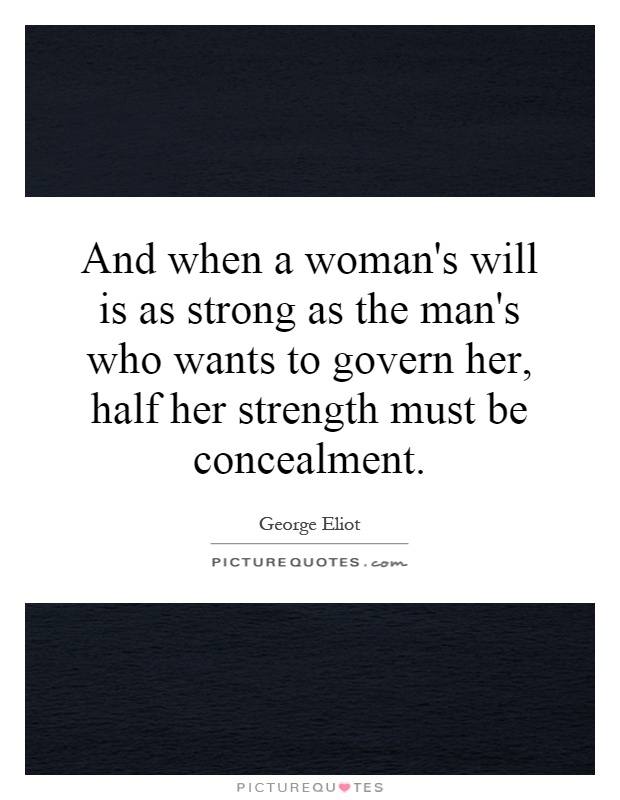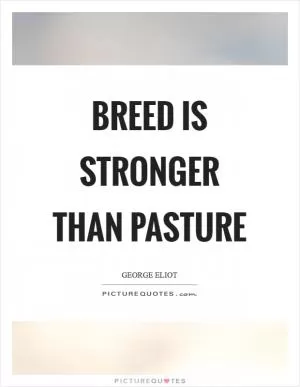And when a woman's will is as strong as the man's who wants to govern her, half her strength must be concealment

And when a woman's will is as strong as the man's who wants to govern her, half her strength must be concealment
In the world of George Eliot, the idea of a woman's will being as strong as a man's who wants to govern her is a complex and nuanced concept. Eliot, a prominent Victorian-era writer known for her insightful and progressive views on gender and society, often explored the complexities of power dynamics between men and women in her works. The quote "And when a woman's will is as strong as the man's who wants to govern her, half her strength must be concealment" speaks to the idea that women, in a patriarchal society, often have to hide their true strength and power in order to navigate the constraints placed upon them by men.In many of Eliot's novels, female characters are depicted as strong-willed and independent, often challenging the traditional gender roles and expectations of their time. These women possess a fierce inner strength and determination that rivals that of the men who seek to control them. However, due to the societal norms and expectations of the time, these women are often forced to conceal their true strength in order to avoid backlash or punishment from the men in their lives.
One of the most famous examples of this theme in Eliot's work can be found in her novel "Middlemarch." The character of Dorothea Brooke is a prime example of a woman whose will is as strong as the men around her, yet she must constantly navigate the expectations and limitations placed upon her by society. Dorothea's desire for intellectual and emotional fulfillment is constantly at odds with the expectations of her husband and the society in which she lives. Despite her inner strength and intelligence, Dorothea is forced to conceal her true desires and ambitions in order to maintain the facade of a dutiful and obedient wife.












 Friendship Quotes
Friendship Quotes Love Quotes
Love Quotes Life Quotes
Life Quotes Funny Quotes
Funny Quotes Motivational Quotes
Motivational Quotes Inspirational Quotes
Inspirational Quotes